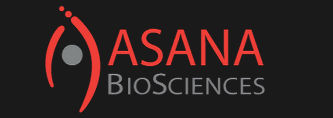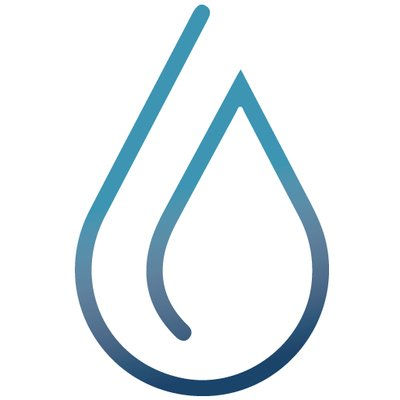Request Demo
Last update 08 May 2025
JAK1 x Syk x JAK3
Last update 08 May 2025
Related
2
Drugs associated with JAK1 x Syk x JAK3Mechanism JAK1 inhibitors [+4] |
Active Org. |
Originator Org. |
Active Indication |
Inactive Indication |
Drug Highest PhasePhase 3 |
First Approval Ctry. / Loc.- |
First Approval Date20 Jan 1800 |
Target |
Mechanism JAK1 inhibitors [+2] |
Active Org.- |
Originator Org. |
Active Indication- |
Inactive Indication |
Drug Highest PhaseDiscontinued |
First Approval Ctry. / Loc.- |
First Approval Date20 Jan 1800 |
12
Clinical Trials associated with JAK1 x Syk x JAK3NCT06238531
A Randomized, Double-Blind, Placebo-Controlled, Phase Ib Study to Evaluate the Safety, Tolerability, And Pharmacokinetics of Gusacitinib in Subjects With Systemic Lupus Erythematosus (SLE)
Background:
Systemic lupus erythematosus (SLE), also called lupus, is a disease that causes the body s immune system to attack healthy tissue. Lupus causes swelling and inflammation in the skin, skin, joints, kidneys, brain, blood vessels, and other organs. There is no cure for lupus. Current treatments do not help everyone and may have adverse effects. Better treatments are needed.
Objective:
To test a study drug (Gusacitinib) in people with lupus.
Eligibility:
People aged 18 years and older with lupus.
Design:
Participants will be screened. They will have a physical exam with blood and urine tests and a test of their heart function. They will have a chest X-ray. They will have tests that use blood pressure cuffs to measure blood flow and pressure throughout the body.
Participants will have 9 clinic visits and 6 phone visits over about 7 months.
The study has 3 parts.
Part 1: Gusacitinib is a tablet taken by mouth. Participants will be divided into 3 groups. One group will receive the study drug, and a second group will get a placebo. The placebo looks like the study drug but does not contain any medicine. Both of these groups will take their tablets once a day for 12 weeks. The third group will continue to take their usual medications for lupus throughout the study.
Part 2: All participants who took the study drug or placebo in part 1 will take the study drug once a day for 12 weeks.
Part 3: All participants who took the study drug will stop taking it for 4 weeks.
Systemic lupus erythematosus (SLE), also called lupus, is a disease that causes the body s immune system to attack healthy tissue. Lupus causes swelling and inflammation in the skin, skin, joints, kidneys, brain, blood vessels, and other organs. There is no cure for lupus. Current treatments do not help everyone and may have adverse effects. Better treatments are needed.
Objective:
To test a study drug (Gusacitinib) in people with lupus.
Eligibility:
People aged 18 years and older with lupus.
Design:
Participants will be screened. They will have a physical exam with blood and urine tests and a test of their heart function. They will have a chest X-ray. They will have tests that use blood pressure cuffs to measure blood flow and pressure throughout the body.
Participants will have 9 clinic visits and 6 phone visits over about 7 months.
The study has 3 parts.
Part 1: Gusacitinib is a tablet taken by mouth. Participants will be divided into 3 groups. One group will receive the study drug, and a second group will get a placebo. The placebo looks like the study drug but does not contain any medicine. Both of these groups will take their tablets once a day for 12 weeks. The third group will continue to take their usual medications for lupus throughout the study.
Part 2: All participants who took the study drug or placebo in part 1 will take the study drug once a day for 12 weeks.
Part 3: All participants who took the study drug will stop taking it for 4 weeks.
Start Date22 Jan 2025 |
Sponsor / Collaborator- |
NCT04021082
CELTIC-1 (Clinical Evaluation of T-cell NHL With Cerdulatinib): A Phase 2b, Open Label, Multidose, Multinational Study of Cerdulatinib (PRT062070) in Patients With Relapsed/Refractory Peripheral T-cell Lymphoma (PTCL)
This is an open-label, multinational study of cerdulatinib in patients with relapsed/refractory PTCL dosed with cerdulatinb, designed to (1) Evaluate tumor response, (2) Assess the safety and tolerability of cerdulatinib, (3) Evaluate duration of response (DUR), progression free survival (PFS) and overall survival(OS), (4) Determine the PK properties of cerdulatinib, (5) Evaluate the efficacy endpoints based on Lugano criteria per IRC and (6)To assess the relationship between target expression (e.g., spleen tyrosine kinase [SYK], Janus kinase [JAK]) and relevant anomalies (e.g., SYK-ITK translocation, mutations in the JAK/STAT pathway) with clinical response.
Start Date15 Nov 2019 |
Sponsor / Collaborator |
NCT04103060
A Phase 2a, Randomized, Double-Blind, Vehicle-Controlled Study to Assess the Safety, Tolerability, and Systemic Exposure of Cerdulatinib Gel, 0.37% in Adults With Vitiligo
This is a phase 2a, randomized, double-blind, vehicle-controlled study to assess the safety, tolerability, and systemic exposure of cerdulatinib gel, 0.37% in adults with vitiligo
Start Date27 Sep 2019 |
Sponsor / Collaborator |
100 Clinical Results associated with JAK1 x Syk x JAK3
Login to view more data
100 Translational Medicine associated with JAK1 x Syk x JAK3
Login to view more data
0 Patents (Medical) associated with JAK1 x Syk x JAK3
Login to view more data
11
Literatures (Medical) associated with JAK1 x Syk x JAK301 Sep 2022·European Journal of Medicinal Chemistry
Dual-target Janus kinase (JAK) inhibitors: Comprehensive review on the JAK-based strategies for treating solid or hematological malignancies and immune-related diseases
Review
Author: Wang, Yezhi ; Qin, Lian ; Jia, Xiangxiang ; Shen, Pei ; Li, Zhiyu ; Feng, Xi ; Qiu, Zhixia ; Xu, Pengfei
01 Jan 2021·Journal of Molecular ModelingQ4 · CHEMISTRY
Investigation of Alpinia calcarata constituent interactions with molecular targets of rheumatoid arthritis: docking, molecular dynamics, and network approach
Q4 · CHEMISTRY
Article
Author: Ekambaram, Sanmuga Priya ; Coumar, Mohane Selvaraj ; Erusappan, Thamizharasi ; Kondapuram, Sree Karani
01 Oct 2020·Inflammation ResearchQ3 · MEDICINE
Transcriptomic analysis of hidradenitis suppurativa skin suggests roles for multiple inflammatory pathways in disease pathogenesis
Q3 · MEDICINE
Article
Author: Howell, Michael D ; Rumberger, Beth E ; Boarder, Erika L ; Owens, Sherry L
Analysis
Perform a panoramic analysis of this field.
login
or

AI Agents Built for Biopharma Breakthroughs
Accelerate discovery. Empower decisions. Transform outcomes.
Get started for free today!
Accelerate Strategic R&D decision making with Synapse, PatSnap’s AI-powered Connected Innovation Intelligence Platform Built for Life Sciences Professionals.
Start your data trial now!
Synapse data is also accessible to external entities via APIs or data packages. Empower better decisions with the latest in pharmaceutical intelligence.
Bio
Bio Sequences Search & Analysis
Sign up for free
Chemical
Chemical Structures Search & Analysis
Sign up for free



